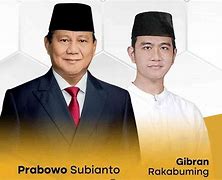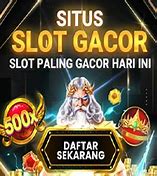
I’d like to continue the conversation I started earlier in the week about trust, especially in your professional life, when I mentioned the new book by Stephen M.R. Covey and Greg Link called
Here are excerpts from the book, which I recommend you get:
It’s a competency and a process that enables us to operate with high trust in a low-trust world. It minimizes risk and maximizes possibilities. It optimizes two key factors: (1) a propensity to trust and (2) analysis. Simply put, Smart Trust is
trust in a low-trust world. A Propensity to Trust The propensity to trust is the inclination, bias, or desire to trust people. As we observed in chapter two, young children typically have a higher propensity to trust. This propensity may be affected one way or the other by personal experience or conditioning. In our work, we see it powerfully affirmed—many times even restored—as people become more aware of high-trust individuals, teams, and organizations around the globe and the results of their high-trust interactions. The propensity to trust is primarily a matter of the heart. Having a high propensity to trust—extending trust deliberately and intentionally— is a vital dimension of Smart Trust . . . as long as it’s combined with equally high analysis. In our experience, those who have a low propensity to trust have usually had experiences that have decreased their willingness to extend trust. The propensity to trust almost always provides the best starting point of Smart Trust; in other words, we lead out with trust first. We don’t ignore analysis; we just suspend it. We approach situations with the belief that “most people are basically good,” and the reason we do this is because it opens up a whole new world of possibilities. -When participants in a recent Edelman Trust Barometer survey were asked, “When you think of good and responsible companies, how important is each of the following factors to the overall reputation of the company?” 91 percent gave high marks to the response “Is a company I trust.” So what creates a brand that inspires trust? Brand experts point to two key elements, which are represented in the twin behaviors of “say” and “do”:
(or the declaration of intent that inspires hope) and
(the fulfillment of the declaration, or doing what they say they’re going to do). -According to Canadian economist John Helliwell, the number one factor linked to happiness—even more than income and good health—is relationships of trust. In
Shawn Achor pointed out that “social relationships are the best guarantee of heightened well-being and lowered stress, both an antidote for depression and a prescription for high performance.” He described the Harvard Study of Adult Development, which tracked the lives of 268 men from entering college in the late 1930s to the present day. The results showed that “there was one—and only one—characteristic that distinguished the happiest 10 percent from everybody else: the strength of their social relationships.” At the core of strong and enduring relationships is trust, while the very definition of a bad relationship is “little or no trust.” Based on their research, Paul J. Zak and Ahlam Fakhar conclude that “While increasing incomes are only weakly associated with increased happiness, the neuro-scientific evidence suggests that there are bidirectional feedbacks between happiness and trust.”
By joy, we simply mean happiness, fun, satisfaction, and what psychologist Dr. Martin Seligman calls “flourishing.” For many people around the world, happiness is the most important goal in life. As we work with teams and organizations worldwide, people don’t necessarily use the word “joy” in describing high-trust relationships at work, but you can see it—or the lack of it—in their faces. When people talk about low-trust relationships, you see tension, sorrow, pain, and sometimes even fear. When they talk about high-trust relationships, everything changes—eyes light up, smiles appear, people become animated, and conversation focuses on the positive outcomes that bring happiness.
Nowhere does trust change energy in organizations more than in employee engagement. Although there are numerous drivers of engagement, the two biggest drivers are: (1) the relationship of trust employees have with their supervisor, and (2) the trust they have for the organization at large. A 2008 Dublin City University Business School study shows that trust and engagement create a virtuous, upward, mutually reinforcing cycle—in other words, as trust goes up in an organization, so does engagement; and as engagement goes up, so does trust. -Other research shows a similar phenomenon playing out among nations. In a landmark 2001 study of forty-one countries, economists Paul Zak and Stephen Knack identified a clear and direct correlation between the level of trust within a given country and the economic growth and investment in that country, concluding that “investment and growth improve with trust.” -The research of Joachim Klewes and Robert Wreschniok from Ketchum Pleon shows that the benefits of reputation for companies include significant competitive advantage in a number of areas, including customer and employee loyalty, stock market performance, and talent and investor attraction. According to Wreschiniok, “A recent study by Harvard Business Manager places reputation among the five most important intangible corporate assets, together with customer satisfaction, employee satisfaction, brand and corporate culture—well ahead of patents and licenses.” In addition, a 2009 study by Concerto Marketing Group found that 83 percent of people who trust a brand will recommend it to others, while 50 percent will actually pay more for its products and services.
In order to increase influence and grow trust in a team, an organization, a community, a family, or a relationship,someone has to take the first step. That’s what leaders do. They go first. They lead out in extending trust. In fact, the first job of a leader is to inspire trust, and the second is to extend it. This is true whether a person has a formal leadership role, such as CEO, manager, team leader, or parent, or an informal role of influence, such as work associate, marriage partner, or friend. -The potential of the renaissance of trust has dramatically increased in today’s flat, global, transparent, interdependent, connected, networked world of instantaneous communication. As Facebook founder Mark Zuckerberg presciently commented in 2008:
Today’s technology is creating a profound shift, a veritable sea change in how the world operates by dramatically enhancing engagement and empowerment, particularly among youth. Consider what is happening in Egypt, Tunisia, Syria, Yemen, Libya, and elsewhere in the so-called Arab spring, with its uprisings inspired by freedom and autonomy and enabled by social media. Although the final outcomes are unclear, the process of social change has been altered forever. The Internet not only democratizes information, it also facilitates a different-in-kind level of transparency. The result is the creation of conditions in which people, organizations, and even governments are held accountable in a way that they haven’t been, and couldn’t be, before. In today’s society, where collaboration reigns and our reputations precede us, everything centers around the primacy of trust. As we’ve said, it’s the new currency, the new money. It’s what enables the markets to work. -These “economics of trust” play out time and again in the market. According to a Watson Wyatt study, high-trust organizations outperform low-trust organizations in total return to shareholders (stock price plus dividends) by 286 percent. A similar study analyzing
magazine’s 100 Best Companies to Work For, which acknowledges trust as two-thirds of the criteria, showed that those high-trust organizations outperformed the market over the thirteen years of the study (from 1998 to 2010) by 288 percent. Pete
%PDF-1.4 %âãÏÓ 33 0 obj <> endobj 70 0 obj <>/Encrypt 34 0 R/Filter/FlateDecode/ID[<4956EB4DF755197F603A93AA613EDB96><50C975D9BA39D346AC1C5C7D923897FC>]/Index[33 64]/Info 32 0 R/Length 149/Prev 306797/Root 35 0 R/Size 97/Type/XRef/W[1 3 1]>>stream hÞbbd```b``Ž‘ ’1D2�‘lsÀlÉ" f÷ƒI)°.0» LfƒEØÀd=XÄLúIFç· rÚF°ˆˆäÎÛ"›Dl�t°~°Ä%òpW1ji‚ØÁõzæ RäÆxc›ÿ(X6 Hþ¹÷™� èG°½@3ùèÇ º¸ endstream endobj startxref 0 %%EOF 96 0 obj <>stream 2 Eª�×cžH?ß&Š¼|ìÁ £ æ.5,±NrÈBóPÂ{ïrÄôiä¸Åeˆ,‹nñ˜i¤=l°<�OQ‰mß RØt˜¿¼`¨µSEQE¾�$;p]Þq}á“mŸmoñÖÕpSø&?{övµ·"[¤Ú endstream endobj 34 0 obj <
Bisnis.com, JAKARTA—Stephen M.R. Covey bertandang ke Jakarta pada 22 Juli 2016. Penulis The 7 Habits of Highly Effective People ini menyampaikan paparan khusus kepada Otoritas Jasa Keuangan atau OJK soal pentingnya menumbuhkembangkan kepercayaan.
Topik itu sejalan dengan benang merah dalam buku terbaru Covey yang berjudul The Speed of Trust. Pada salah satu bab dia menulis: organisasi dibangun bukan lagi berdasarkan kekuatan, tapi kepercayaan. Ini adalah kalimat petama pada bab soal kepercayaan dalam berorgasisasi.
Salah satu gagasan menarik yang dipaparkan Covey kepada jajaran pengurus OJK kala itu soal kategorisasi kepercayaan. Menurutnya ada empat kategori, yaitu blind trust, no trust, distrust, dan smart trust.
Lantas, mana yang direkomendasikan kepada otoritas dalam berkiprah di industri keuangan tersebut?
Apabila hendak membangun hubungan kerja yang kondusif bagi organisasi ini, katanya, tentu saja smart trust alias kepercayaan cerdas. Tapi smart trust, ujar Covey, hanya bisa dicapai melalui rasa percaya yang tinggi disertai analisis yang tepat.
“Keberadaan OJK seharusnya menjadi solusi untuk membangun kepercayaan, terutama bagi masyarakat, di industri keuangan,” tuturnya.
Secara umum, Covey menjelaskan kepercayaan sebagai sesuatu yang, apabila hilang, bisa meruntuhkan rezim penguasa, bisnis yang sukses, ekonomi yang bertumbuh, kepemimpinan yang berpengaruh, persahabatan yang erat, karakter yang kuat, dan cinta yang tulus.
Pada sisi lain, apabila kepercayaan itu dipelihara dan dikembangkan bisa menghasilkan kesuksesan dan kemakmuran dalam berbagai dimensi kehidupan. Kepercayaanlah yang memengaruhi kehidupan seseorang selama 24 jam dalam sehari dan 365 hari dalam setahun.
Namun sekali lagi, rasa percaya yang diberikan tidak bisa hanya berbekal intuisi. Perlu ada analisis yang pas dalam menyalurkannya. Sebut saja salah satu lembaga keuangan; bank. Tanpa smart trust, kredit yang disalurkan bank bisa-bisa hanya berakhir dengan rasio kredit bermasalah yang kian melambung.
“Menurut saya, kepercayaan adalah sesuatu yang bisa Anda kendalikan,” demikian pendapat Covey.
Cek Berita dan Artikel yang lain di Google News dan WA Channel
Stephen M. R. Covey is the New York Times and #1 Wall Street Journal bestselling author of The Speed of Trust, which has been translated into 22 languages and has sold over 2 million copies worldwide. He is also the author of the newly released Wall Street Journal bestseller, Trust & Inspire: How Truly Great Leaders Unleash Greatness in Others, which was named as the #1 Leadership Book of 2022 by the Outstanding Work of Literature Awards. Stephen brings to his writings the perspective of a practitioner, as he is the former President & CEO of the Covey Leadership Center, where he increased shareholder value by 67 times and grew the company to become the largest leadership development firm in the world. A Harvard MBA, Stephen co-founded and currently leads FranklinCovey’s Global Speed of Trust Practice. He serves on numerous boards, including the Government Leadership Advisory Council, and he has been recognized with the lifetime Achievement Award for “Top Thought Leaders in Trust” from the advocacy group, Trust Across America/Trust Around the World. Stephen is a highly sought-after international speaker who has taught trust and leadership in 57 countries to business, government, military, education, healthcare, and NGO entities.
%PDF-1.7 %���� 2 0 obj << /Filter /FlateDecode /Length 7280 >> stream hŞÔ[Ûr#·µ}çWğ±'eõ4n}ÉKʱãœ9''¥\§&~ ¨–D›™¤FQ>Ã9•ï=kí A�4™$)�ª†İh4°ï{m4ğú‹C;_æFşËíìõoßÚùíafæ«ùìG46ø3sßug»¹·¡îÛ~¾ÜȃÍì¶uë,®/|_{k綫}ï¦ûÖÔMçæËYn|ݶèß½0ÖÖÆ’.—³ó‡g/0úÙô™.ş-g7¿˜ıqöšì~ñv^×Ù€kBÇŸà‡ùÛ/~?kæÿ�Şßƒáǹ[ãæ_Ïß™¦n3ø¿qóïšùõ¬‡ïZÈÁ7]ÜĞÍ×hğuï½´˜ÖJ‹}°hñu‡—Ø‚¡‡^Z¬g¼[w Ş[W‡ÖKK¨ƒá[¶î ¶¸Úö-ZLİ Ò`jÙ¦î@!ú¾ØÃ�E+-m=Ğgz&[|=4ìAõ2woë!°7ÚBábdãjßôlé†ÒB‹©ÛFÆéº:àEÒÚq"i{á¡#h +�6€hÀ7®v�4˜Úà»áŒ2J;ÔƒïçnèÓ¸-¯ZÚÚ:#-˜W”HÛ‹(Ú¶ö�EÒtÂCA#”‰SjZXßêCİZ}ËÕ=zS½1±ÆDv§/Á@ ¸¥1h%AŞ#<À�™ºF¤¯-P4Éâ°‰ İpÒÅ$-¤Q¸mºr¦@ñ…‚˜`ë0”äzè œpä[Ø“)¹ö®ZWJÆCöªİ$=××Á–vÆâJ%8h®5¥¢\S÷ÊST¦³Æ´…¾¼ÒZ3™„³YzÑj¬zP¾£e9XqXÏ™.I8Z¨ƒ›ŞV쌇텥;ƒ'ÍPxƒƒ{ßãàìFíZ�Ê5}İ÷}ávfİ« D×tMWo÷eKcûÂÅlê)€c€0¡lñVûH4aƒ´‹iÑ—À�‘©rpÜ‚¿bÓ•Ó@�°¡’Ⱥm‡’\Ä�Á›‚%•™¶dÛC°¢B4ª÷m)=ï`š.öÎ×Á—ZğÖ6”šò�>Z(Ó{Hée…{O÷ğ…QxtKF³áxjK½dãòtŠ/ÛŸGº0p•ÉF=œ'4¾°cPÙ'Ûº˜ƒ�–ıšeıä2>8µ¿ìU>@¶ô0¦¹ÂƒÙÒ!±MNîCaE`K eçXÁqÏOØÒ…2äL}RXÊãäÈ•çÊÑ-Ó“#`¦9ÉÌW�£™÷k³|r<Î"Ì1;‹9Çõ¬Šû³ºr~H*�rHR{N3É2¦L”¬gJVɦ„–¬pJzÑP§¼˜lyÊ�ÉŞ§üš|bÊÁÉo¦<�|kÊåÉÿr¶O.:‚äÆhH®>†‚xÄPQ€“NJ sŠqÖ3¢BL=4„U‹>D§œD€¾ï |TİšDkñÖ@E} íó ¦êÅ{À¶oÆÒüÚ©áRì²Ïa× ç~}9{ı•Åì—7h†ä‡ï\¤‹fî]10 Ú�6Ì/7³gÁ¹AÄíç—Kuù8«.¿ùÓÛËW—ßÏ~s9SxL€X ÃwßÍ ÿsÜÀü4»ëSFÎ|1;lÛ\@µNEü¬etå`0›¹³ë%[ç{ 0¸D�©Û¡C¼hà}–´Ã =ÒR< ÅY½ıúóo’$œ]F7Î…‘Ê�?İ`çûñôñİÆ ã³óÖĞÚb�‡w§ƒ˜cá)-2V@¤™î‘y—³Ô;Àh!€vïMs¤{¼AÔà PC ŞSä–H„�i<ãb9æ€�ĞM–µ�Tw‚é\ݸ0İæ•/m�Hf 1¤µn�gˆ÷Ê×ĞSÄ{ÛN¤Û



